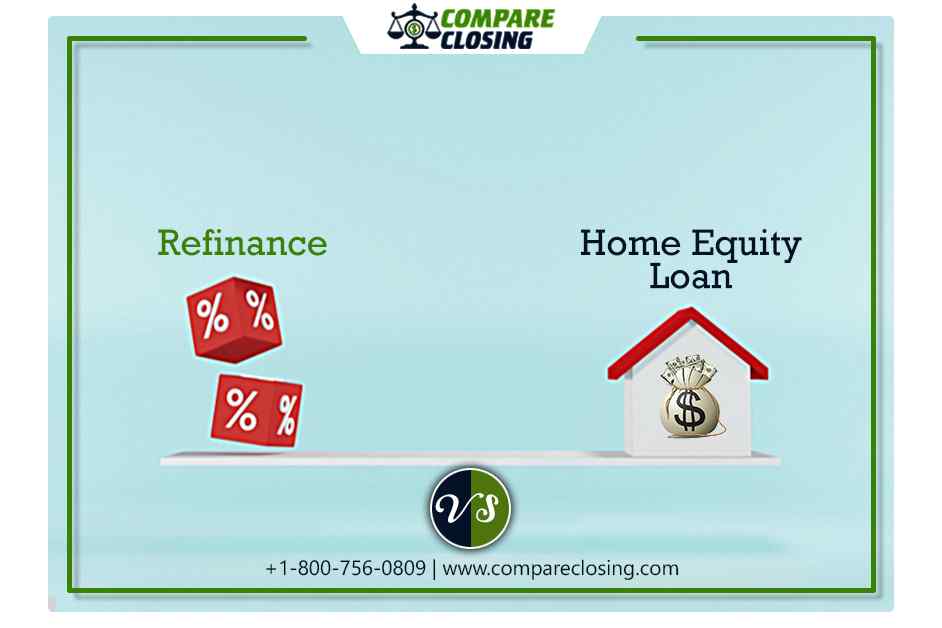Table of Contents
- What Are Netting Escrows & How Does It Work?: The Best Guide - January 2, 2024
- The Secret About Prescriptive Easement: Top Guide 1 Must Know - December 4, 2023
- About Home Equity Loans In Texas And How Can One Obtain It - November 27, 2023
Overview of Home Equity Loan vs Refinance
A home is not only a place where you live, or made an investment. Your home is a handy source of ready cash in case of emergencies, repairs, or upgrades, which can be obtained either through mortgage refinancing or through a home equity loan.
Your old mortgage is paid off in exchange for a new mortgage through refinancing, and that too at a lower interest rate.
In a home equity loan, you get cash in exchange for the equity you have built for your home, and it is given as a separate loan.
About Refinancing
A rate and term refinance and a cash-out refinance are the two common methods for a mortgage refinance, or “refi”.
In a rate-and-term refi, there is no money changing hands, except for costs associated with closing and funds from the new loan paying off the old loan.
With a cash-out refi, some of the equity is effectively handed over in your home as cash. After the closing, you walk out with a new loan and a check for cash.
Closing costs come to 2% to 3% of your loan amount, even on a refinance depending on where you live you may be subject to pay tax.
The condition being you should plan to continue living in that home for a year or more.
If you can recoup your closing costs with a lower monthly interest rate within about 18 months then a rate-and-term refi can be a good idea.
About Home Equity Loans
Compared to personal, unsecured loans the home equity loans tend to have lower interest rates because they’re collateralized by your property.
If you default on your payment the lender can come after your home.
There are two options with home equity loans – the traditional home equity loan, where you borrow a lump sum, and the home equity line of credit (HELOC).
With a HELOC for a set time period after you receive it, which is known as the draw period, you can generally borrow as little or as much of that credit line as you want.
Even though some loans require a set minimum amount as an initial withdrawal. It is more like a credit card that is tied to the equity of your home.
In HELOC during a predetermined period you may be required to pay a transaction fee each time you make a withdrawal or an inactivity fee if you don’t use your credit line at any time.
And you pay only interest on what you’ve borrowed during the draw period. When the draw period ends, your credit line ends, meaning you cannot withdraw anymore.
Now you start paying back the principal along with the interest when the repayment period kicks in.
Second Mortgages
A second mortgage is what a traditional home equity loan is often called. You already have a primary mortgage, and now you’re taking a second loan against the equity of your home.
If you default the second loan is subordinate to the first, meaning that the second lender will stand in line behind the first lender to collect any proceeds from a foreclosure.
This is the reason why the home equity loan interest rates are usually higher because the lender is taking a greater risk. Sometimes HELOCs too are referred to as second mortgages.
Usually, home equity loans have a fixed interest rate, sometimes they could be adjustable, but HELOCs have only adjustable interest rates.
The home equity line of credit’s annual percentage rate (APR) is calculated as per the loan’s interest rate, whereas for a traditional home equity loan the APR generally includes the costs of initiating the loan.
Example: Refinancing vs Home Equity Loan
Suppose your home was purchased a decade ago and at that time the interest rates were 5% on a 30-year fixed-rate mortgage.
Now, you can get a mortgage at an interest rate close to 3.0%. Resulting in you saving hundreds of dollars a month in your payment, and even more over the total cost of financing your home over the term of the loan.
In this case, a refinance would be to your advantage.
Or, if you already have a low interest rate, and are looking for some extra cash to repair your roof, add a deck to your home, or pay for your child’s college education, a home equity loan could work out to be mighty attractive.
Your credit score is the deciding factor on your ability to borrow through either refinancing or a home equity loan.
If the score is lower than when you originally purchased your home, then it might not be a good idea to refinance because it could possibly increase your interest rate.
Before going through the process of applying for either of these loans get your credit scores from the credit bureaus. Your score might affect your interest rate if they’re not all consistently over 740 so take advice from your potential lender.
Conclusion
When considering between home equity loan vs refinance both provide homeowners with a way to get cash depending on the equity in the home.
If you intend to stay in your home for at least a year then refinancing can be ideal where your interest rate will drop, leading to lower monthly payments.
Borrowers requiring a substantial sum for a specific purpose, such as a major home improvement can take advantage of home equity loans.
HELOCs are ideal for individuals who need access to a reserve of cash over a period of time instead of upfront.
Amanda Byford
Amanda Byford has bought and sold many houses in the past fifteen years and is actively managing an income property portfolio consisting of multi-family properties. During the buying and selling of these properties, she has gone through several different mortgage loan transactions. This experience and knowledge have helped her develop an avenue to guide consumers to their best available option by comparing lenders through the Compare Closing business.





